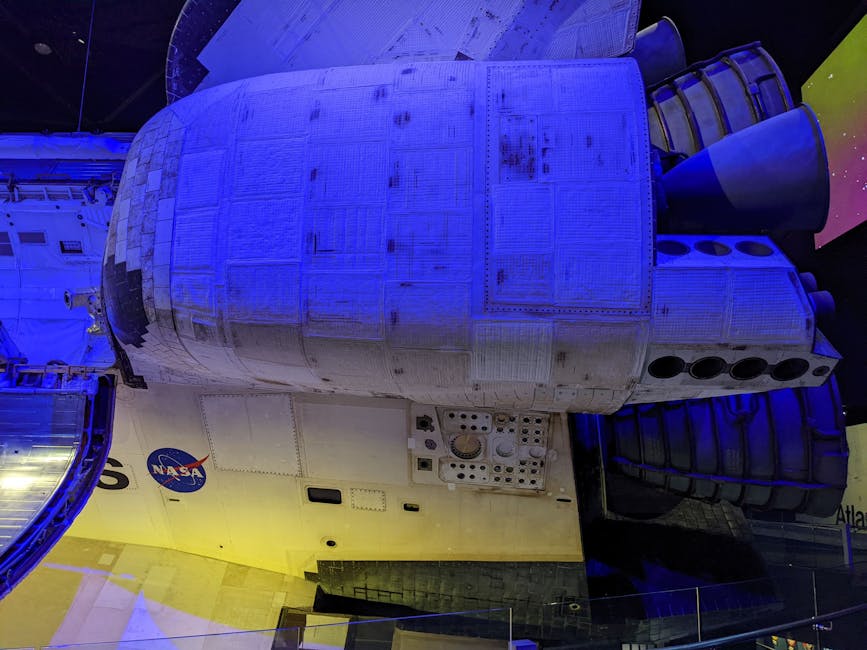The Role of Aluminium Die Castings in Automotive and Aerospace Industries in the UK
Aluminium die castings play a pivotal role in the automotive and aerospace industries in the UK. With an increasing emphasis on lightweight and high-performance materials, the demand for aluminium die castings has been steadily growing.
The inherent advantages of aluminium die castings, including high strength-to-weight ratio, excellent dimensional stability, and intricately shaped designs, make them an ideal choice for various applications in both industries. In the automotive sector, these castings are widely used in engine components, transmission housings, and structural parts, while in aerospace, they find applications in aircraft components and structural assemblies.
Moreover, ongoing technological advancements continue to enhance the capabilities and performance of aluminium die castings, positioning them as a crucial element in the future of these industries.
Key Takeaways
- Increasing demand for aluminium die castings in the UK automotive and aerospace industries due to their lightweight nature, high strength, and corrosion resistance.
- Aluminium die castings contribute to improved fuel efficiency and performance in vehicles by reducing overall vehicle weight and enhancing heat dissipation in engine components.
- The design flexibility of aluminium die castings allows for complex shapes and structures that optimise aerodynamics and reduce fuel consumption.
- Technological advancements in die casting processes have led to the development of more intricate and lightweight designs, improving the quality and consistency of aluminium die castings.
Growing Demand for Aluminium Die Castings

The growing demand for aluminium die castings in the UK automotive and aerospace industries has led to a significant increase in production and utilisation. Market trends indicate a shift towards the use of aluminium due to its lightweight nature, high strength, and corrosion resistance, making it an ideal material for manufacturing components in these industries.
The automotive sector, in particular, has shown a substantial inclination towards aluminium die castings to reduce vehicle weight and improve fuel efficiency.
This increased demand has also brought attention to the environmental impact of aluminium die castings. Manufacturers are focussing on sustainable production methods and recycling processes to minimise the carbon footprint associated with aluminium casting production. Additionally, the recyclability of aluminium plays a crucial role in meeting environmental goals, as it can be melted and reused with minimal loss of properties.
Companies are increasingly investing in research and development to further enhance the environmental sustainability of aluminium die casting processes, alining with the growing global emphasis on eco-friendly manufacturing practises.
As market trends continue to evolve, the demand for aluminium die castings is expected to rise further, prompting continuous innovation in production techniques and environmental stewardship.
Advantages of Aluminium Die Castings

With the increasing demand for aluminium die castings in the UK automotive and aerospace industries, it becomes imperative to analyse the advantages that these components offer in terms of performance and efficiency. Aluminium die castings provide significant advantages, including cost effectiveness and design flexibility.
| Advantages | Description |
|---|---|
| Cost Effectiveness | Aluminium die castings offer cost savings due to their high-speed production capabilities and material efficiency. |
| Design Flexibility | These castings allow for intricate and complex designs, providing opportunities for innovative and lightweight components. |
The cost effectiveness of aluminium die castings is derived from their ability to be produced at high volumes with minimal material waste, making them economically viable for large-scale production. Moreover, their design flexibility allows for the creation of intricate and complex shapes, thus enabling innovative and lightweight designs that meet the stringent performance requirements of the automotive and aerospace industries.
Transitioning into the subsequent section about ‘applications in the automotive industry’, these inherent advantages position aluminium die castings as pivotal components in the pursuit of advanced and efficient manufacturing processes.
Applications in the Automotive Industry

Aluminium die castings play a crucial role in the automotive industry, particularly in the production of lightweight vehicle components. The use of aluminium in vehicle parts contributes to improved fuel efficiency and overall performance.
These castings have become integral to the design and manufacturing of modern vehicles, alining with the industry’s focus on sustainability and innovation.
Lightweight Vehicle Components
Utilising lightweight aluminium die castings has become integral to the production of vehicle components in the automotive industry. This shift is driven by the material properties of aluminium, such as its high strength-to-weight ratio, excellent thermal conductivity, and corrosion resistance. These properties make it an ideal choice for manufacturing components like engine blocks, transmission cases, and structural parts in vehicles.
In addition to its material properties, the environmental impact of aluminium die castings is also a significant factor. The use of aluminium in vehicle components contributes to lightweighting, which in turn leads to reduced fuel consumption and lower CO2 emissions, alining with the automotive industry’s push towards sustainability.
As a result, the adoption of lightweight aluminium die castings continues to play a crucial role in advancing automotive technology and environmental responsibility.
Fuel Efficiency and Performance
How do aluminium die castings contribute to enhancing fuel efficiency and performance in the automotive industry? Aluminium die castings play a crucial role in improving fuel efficiency and performance in vehicles. The use of aluminium die castings allows for improved design flexibility, enabling the creation of complex shapes and structures that can optimise aerodynamics and reduce overall vehicle weight. Additionally, the material properties of aluminium, such as its high strength-to-weight ratio and excellent thermal conductivity, contribute to enhancing vehicle performance. These properties allow for the development of more efficient engine components and better heat dissipation, ultimately improving the overall fuel efficiency and performance of the vehicle.
| Benefits of Aluminium Die Castings |
|---|
| Improved design flexibility |
| Enhanced aerodynamics |
| Reduced vehicle weight |
| High strength-to-weight ratio |
| Excellent thermal conductivity |
This focus on fuel efficiency and performance in the automotive industry demonstrates the adaptability and functionality of aluminium die castings. The next section will delve into the applications of aluminium die castings in the aerospace industry.
Applications in the Aerospace Industry

The aerospace industry in the UK extensively relies on aluminium die castings for the production of a wide range of components and parts. This is due to the exceptional properties of aluminium, which make it an ideal material for aerospace applications. The manufacturing processes involved in aluminium die casting allow for intricate and complex shapes to be produced with high precision, meeting the stringent requirements of the aerospace industry.
-
Aircraft Components: Aluminium die castings are used in the production of various aircraft components such as engine housings, brackets, and structural parts. The lightweight nature of aluminium, coupled with its strength and durability, makes it a preferred choice for such critical components.
-
Avionics and Instrumentation: The aerospace industry also utilises aluminium die castings for avionics and instrumentation components. These parts require precision and reliability, and aluminium’s ability to maintain tight tolerances and offer excellent electromagnetic shielding makes it a suitable material for these applications.
-
Satellite and Spacecraft Parts: Aluminium die castings play a crucial role in the production of parts for satellites and spacecraft. From structural components to specialised parts for scientific instruments, aluminium’s versatility and reliability make it a key material in the aerospace industry.
Technological Innovations and Advancements

Significant advancements in die casting technology have revolutionised the production processes for aluminium components in both the automotive and aerospace industries in the UK. Technological advancements in die casting have led to the development of more complex and lightweight designs, meeting the increasing demand for fuel-efficient vehicles and aircraft. These advancements have enabled the production of aluminium die castings with enhanced material properties, including improved strength, durability, and heat resistance, making them suitable for critical applications in the automotive and aerospace sectors.
Moreover, technological innovations in die casting processes have facilitated the production of intricate geometries and thin-walled sections, which were previously challenging to achieve. This has not only expanded the design possibilities for engineers but also contributed to the overall reduction in component weight without compromising structural integrity.
Furthermore, advancements in process monitoring and control technologies have improved the consistency and quality of aluminium die castings, ensuring compliance with industry standards and regulations.
Future Outlook for Aluminium Die Castings

As the demand for lightweight, high-strength components continues to grow, the future outlook for aluminium die castings in the automotive and aerospace industries in the UK remains promising. Market trends indicate a surge in the use of aluminium die castings due to their exceptional strength-to-weight ratio, making them ideal for applications where reducing weight is crucial.
Additionally, sustainability initiatives are driving the adoption of aluminium die castings as they are highly recyclable, contributing to the overall environmental goals of the industries.
The future is characterised by an increased integration of aluminium die castings in electric vehicles, where their lightweight properties play a pivotal role in enhancing energy efficiency and extending battery life. Furthermore, advancements in alloy development and die casting techniques are expected to further improve the mechanical properties and precision of aluminium die castings, making them even more attractive for critical automotive and aerospace applications.
Frequently Asked Questions
What Are the Environmental Impacts of Using Aluminium Die Castings in Automotive and Aerospace Industries?
Aluminium die castings in automotive and aerospace industries impact the environment through energy-intensive production. However, their recyclability and lightweight properties contribute to environmental sustainability, reducing fuel consumption and emissions. Proper disposal and recycling practises are crucial for minimising environmental impact.
How Do Companies Ensure the Quality and Safety of Aluminium Die Castings Used in Critical Automotive and Aerospace Components?
Ensuring the quality and safety of aluminium die castings in critical automotive and aerospace components involves rigorous quality assurance protocols and meticulous material testing. Adhering to industry standards and employing advanced inspection technologies are pivotal.
What Are the Challenges Faced in Integrating Aluminium Die Castings Into Advanced Automotive and Aerospace Technologies?
Integrating aluminium die castings into advanced automotive and aerospace technologies presents challenges related to material compatibility, design complexity, and performance standards. Overcoming these hurdles requires meticulous engineering, stringent testing, and close collaboration amongst industry stakeholders.
Are There Any Specific Regulations or Standards That Govern the Production and Use of Aluminium Die Castings in the Uk?
Regulatory compliance for aluminium die castings in the UK is governed by industry standards such as ISO 9001 and ISO/TS 16949, ensuring quality, safety, and environmental responsibility in production and use. Compliance is critical for meeting industry demands.
How Does the Cost of Aluminium Die Castings Compare to Other Materials Used in Automotive and Aerospace Applications?
When comparing the cost of aluminium die castings to other materials in automotive and aerospace applications, the suitability of the material for the specific requirements plays a significant role. Factors such as strength, weight, and production complexity must be carefully evaluated.
Conclusion
In conclusion, the use of aluminium die castings in the automotive and aerospace industries in the UK is on the rise due to their numerous advantages and applications.
With ongoing technological innovations and advancements, the future outlook for aluminium die castings looks promising.
As the demand for lightweight and durable components continues to grow, aluminium die castings are poised to play a significant role in the development of the automotive and aerospace industries in the UK.
Contact us to discuss our services now!
